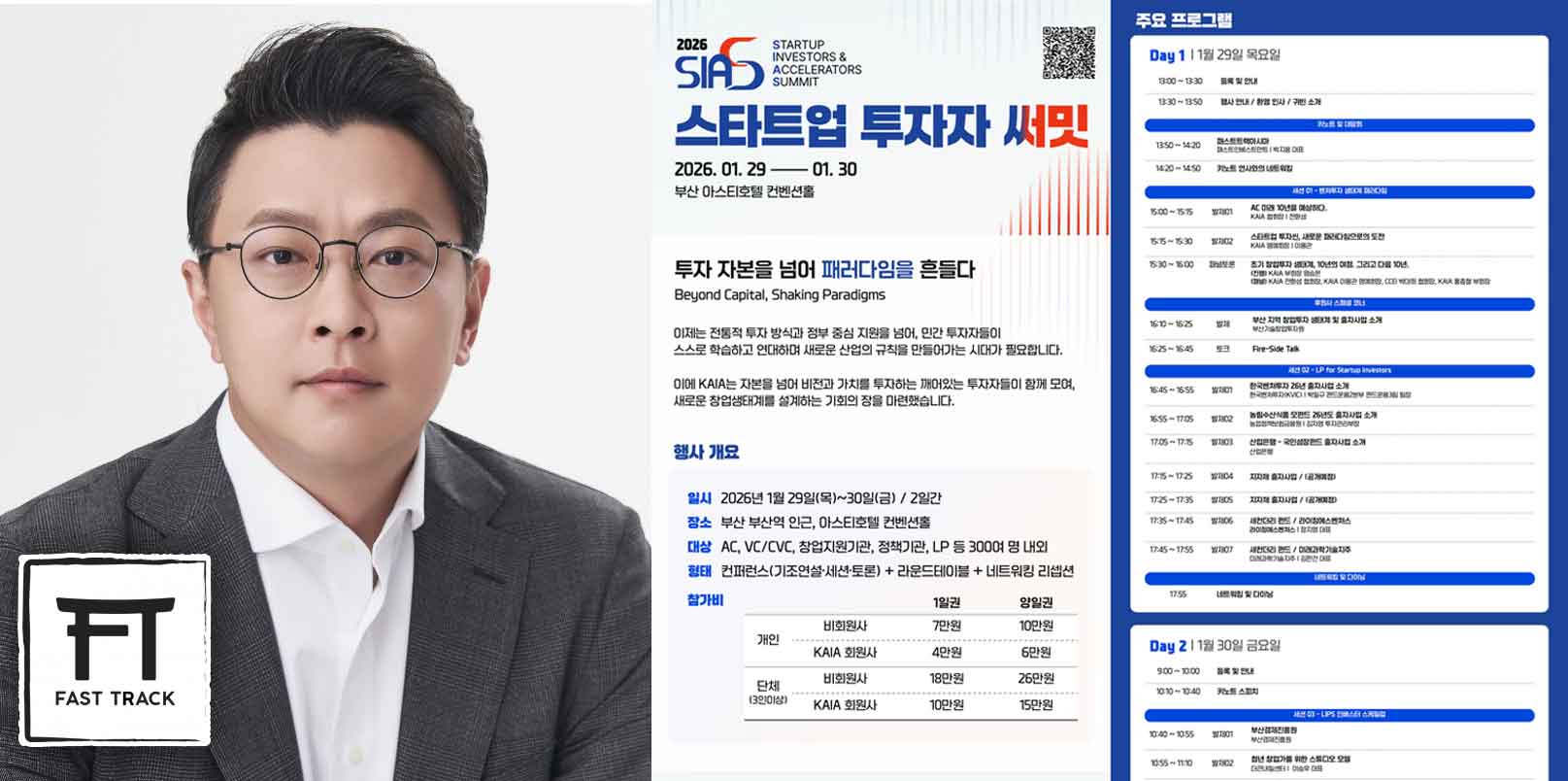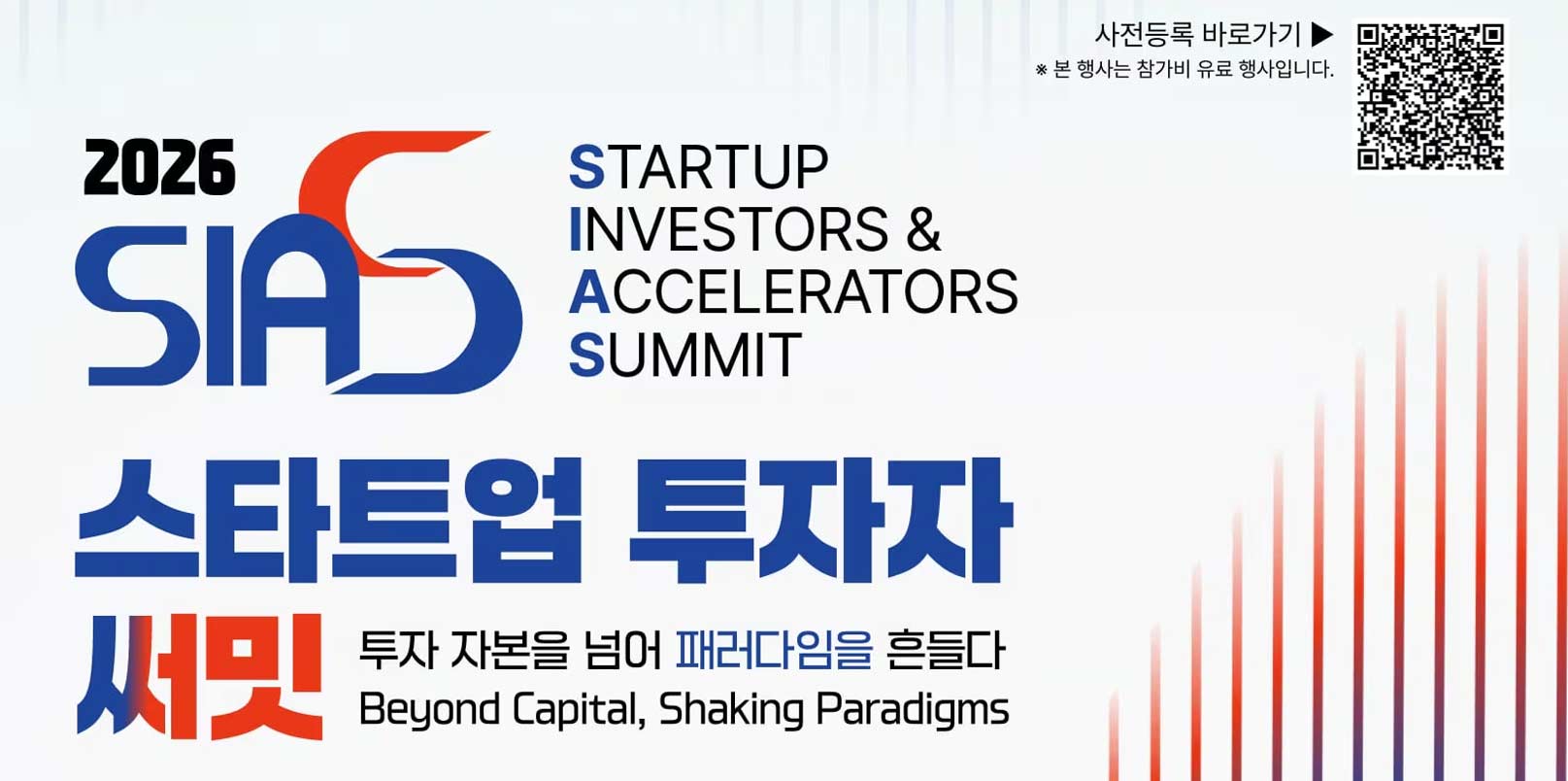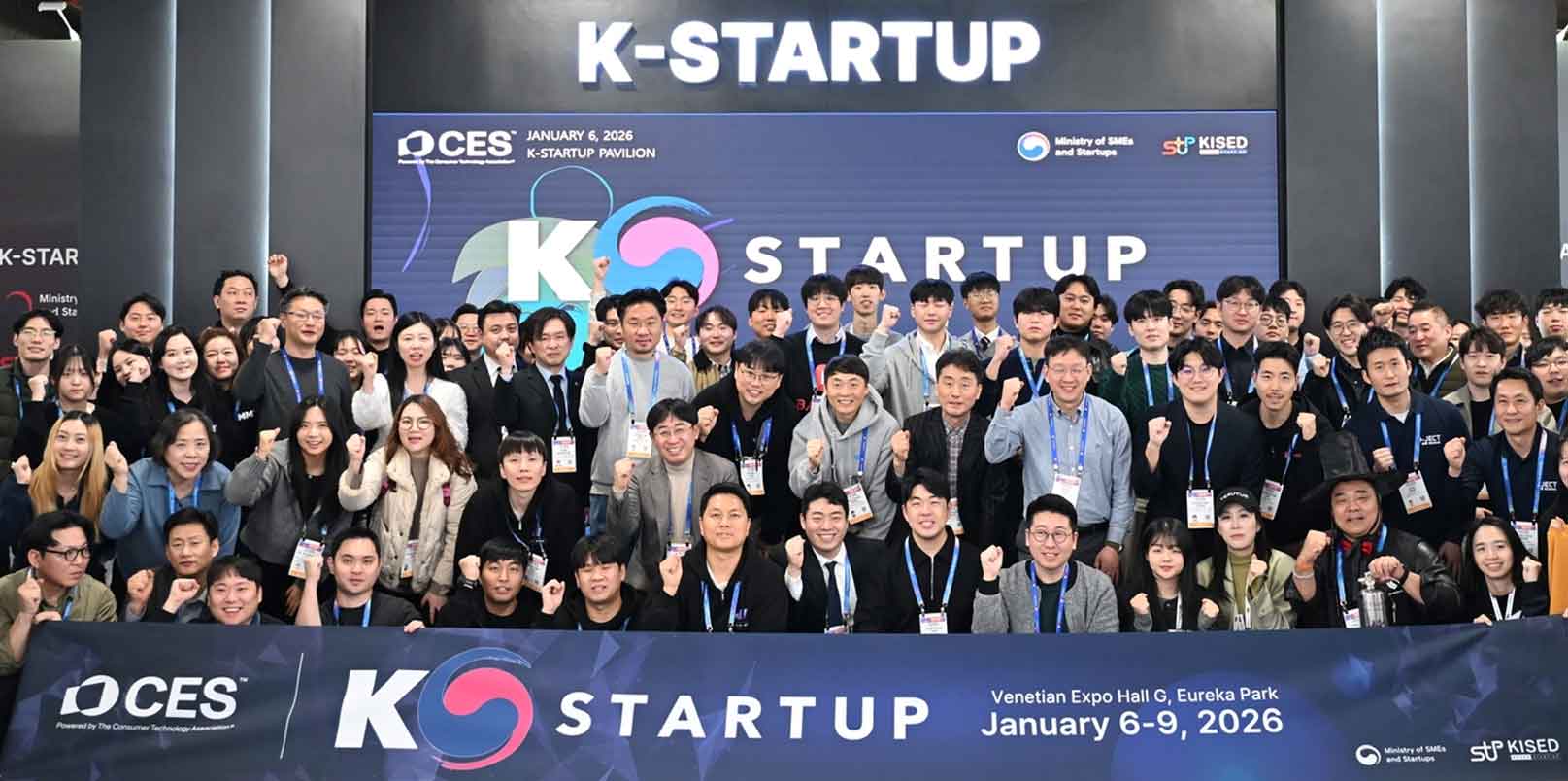The COMEUP festival had considerably grown from 2019 when it was rebranded to become Asia’s largest startup festival. The festival seeks to expose its startups to potential worldwide investors and provide them with guidance, information, and counseling to become the next unicorns. The festival also offers information and guidance to investors, VCs, and other large conglomerates on investing and nurturing startups. Day 1 open innovation session was all about startups and how they can access the much-needed help to grow. Day 2of the festival covered how investors and VC companies could nurture startups, partner with them, and create a synergy that would enable both parties to grow and make profits. The session had talks from Naver, Daimler, and Shinsegae on how they approached open innovation and how their strategy is helping them in partnering with different firms.
Shinsegae: The focus on lifestyle innovation
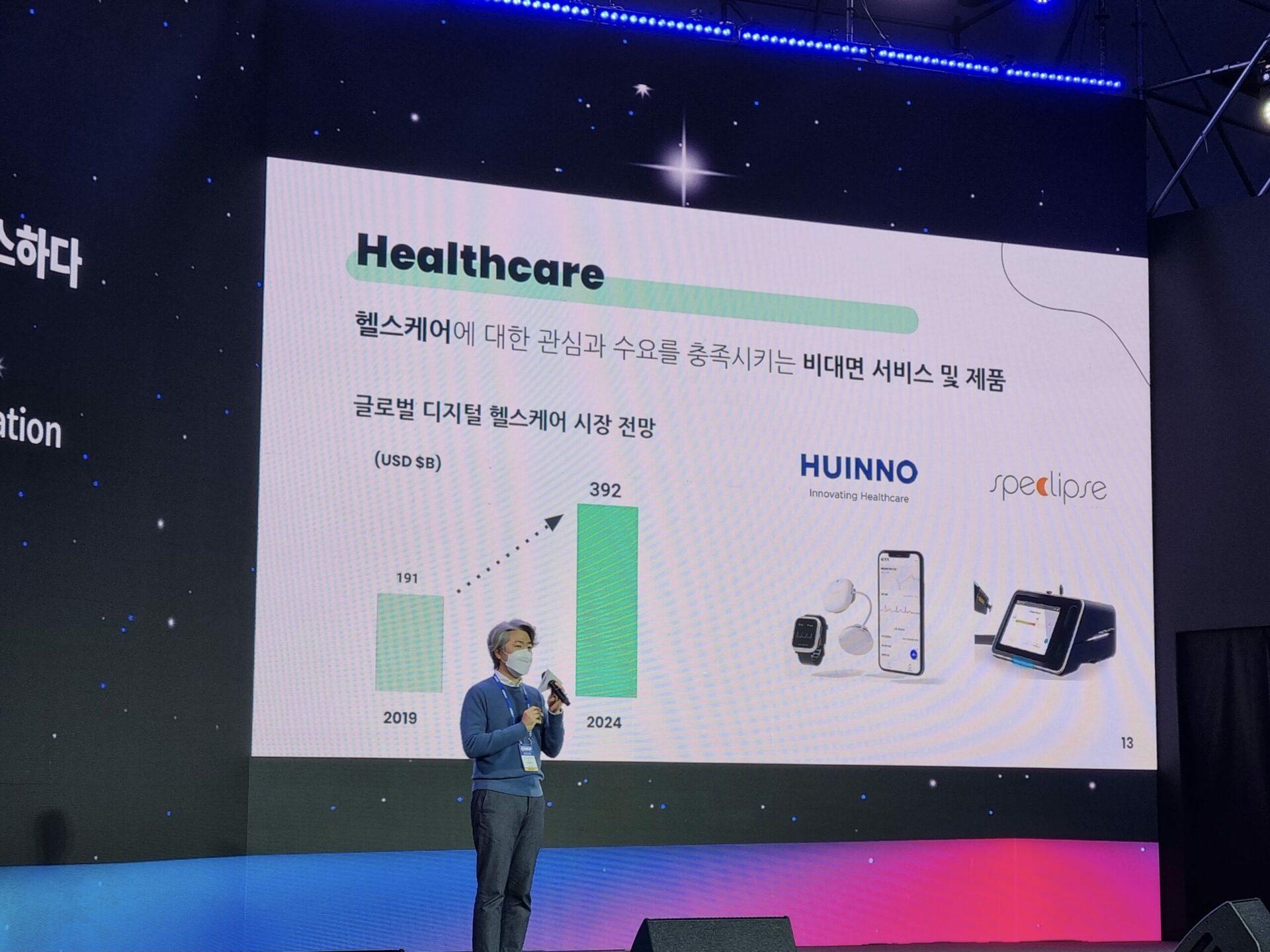
Jeffrey Lim began his talk by showing how technological advancement has drastically changed our lives in the last decade. Today, we can look for houses, order food, commute on self-driving cars, have virtual meetings, and measure basic healthcare information using gadgets. Shinsegae is a lifestyle firm with several different projects aimed at making life more convenient. The firm invests in startups offering promising lifestyle innovation. Shinsegae’s philosophy is to partner with them, helping them develop its products, commercialize them and grow in the lifestyle sector. In selecting startup partners, Shinsegae uses WHERE, which stands for wellness, healthcare, education, retail, and entertainment. Shinsegae believes that these areas see a lot of lifestyle innovation that makes people’s daily lives more convenient. It invests in sustainability firms such as Manna Cea, which grows organic plants and fish using innovative plants that purify water while acting as a suitable food source for fish. Jeffrey Lim ended his speech by urging large corporations and startups to work together and create an ecosystem that enables both parties to grow.
Naver: To open innovation and beyond
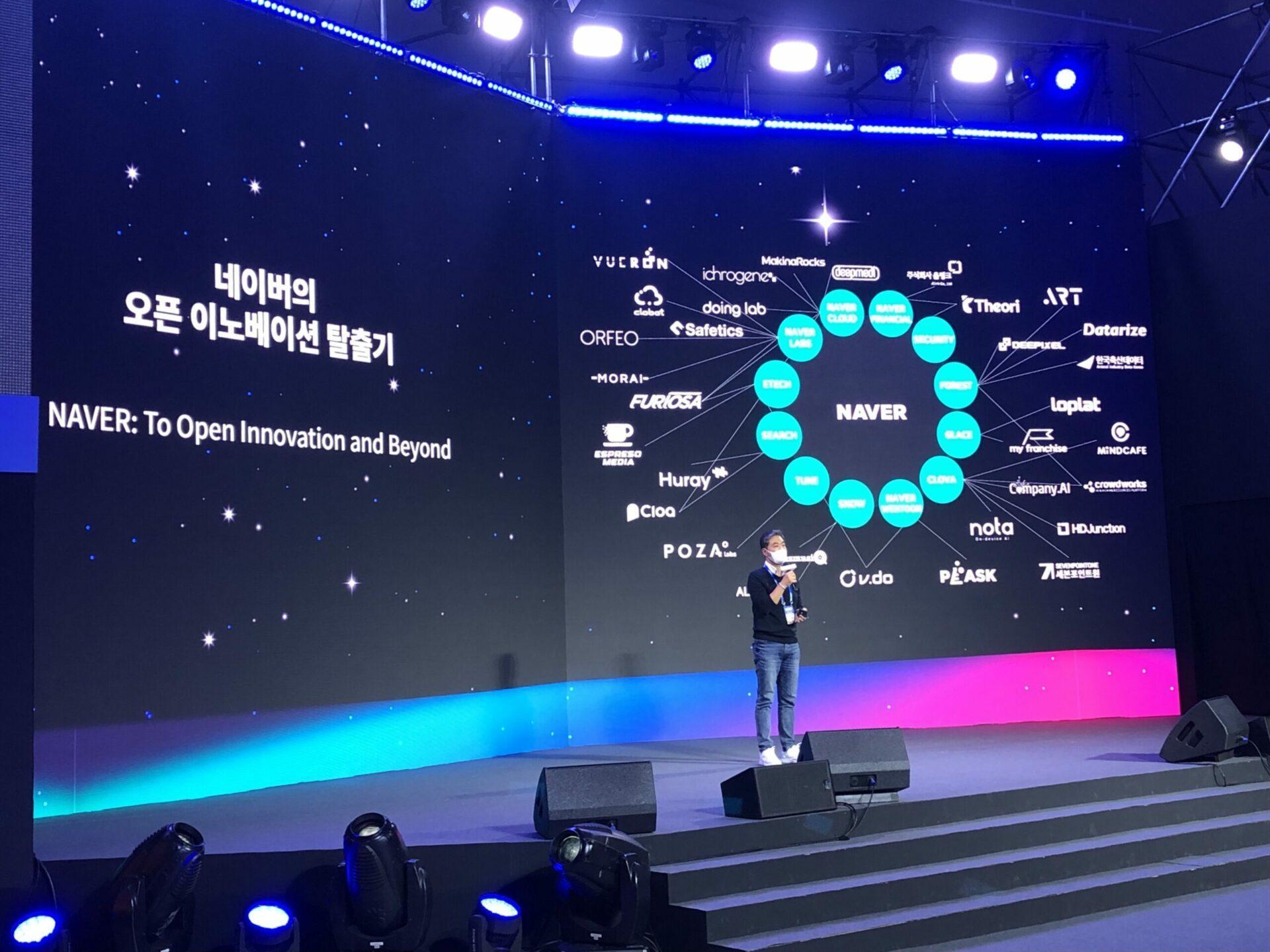
Sanghwan Yang, Naver’s D2 startup factory leader, showed how Naver averted open innovation when creating their startup ecosystem. According to Yang, large companies carry out several mistakes that reduce the survival rate of Korean startups. These firms tend to approach startups providing capital or to use the startups to enter new markets. They force the startups to adopt their goals and objectives while setting strict timelines to production. “The approach is detrimental to young firms as they may not be able to meet tight deadlines due to financial constraints and other factors not experienced in larger companies. Also, they lack sufficient information and guidance on how they can survive in the market after commercializing their product. The approach leads to only 30% of startups surviving the first five years,” Yang said. Naver uses a different approach in its startup ecosystem. Instead of just providing capital, it provides information, guidance, office spaces, and other essential resources these firms need to grow. Naver’s D2 program has diversified the company’s portfolio by providing partnership and support to more than 30 startups in 12 different industries. Due to their unique approach to startup partnerships, Naver has grown by more than six times since 2018, with its startups having a survival rate of 99%. D2 mainly invests in AI, blockchain, security, mobility, AR, digital health, robotics, and cosmetics startups.
Daimler’s open innovation strategy
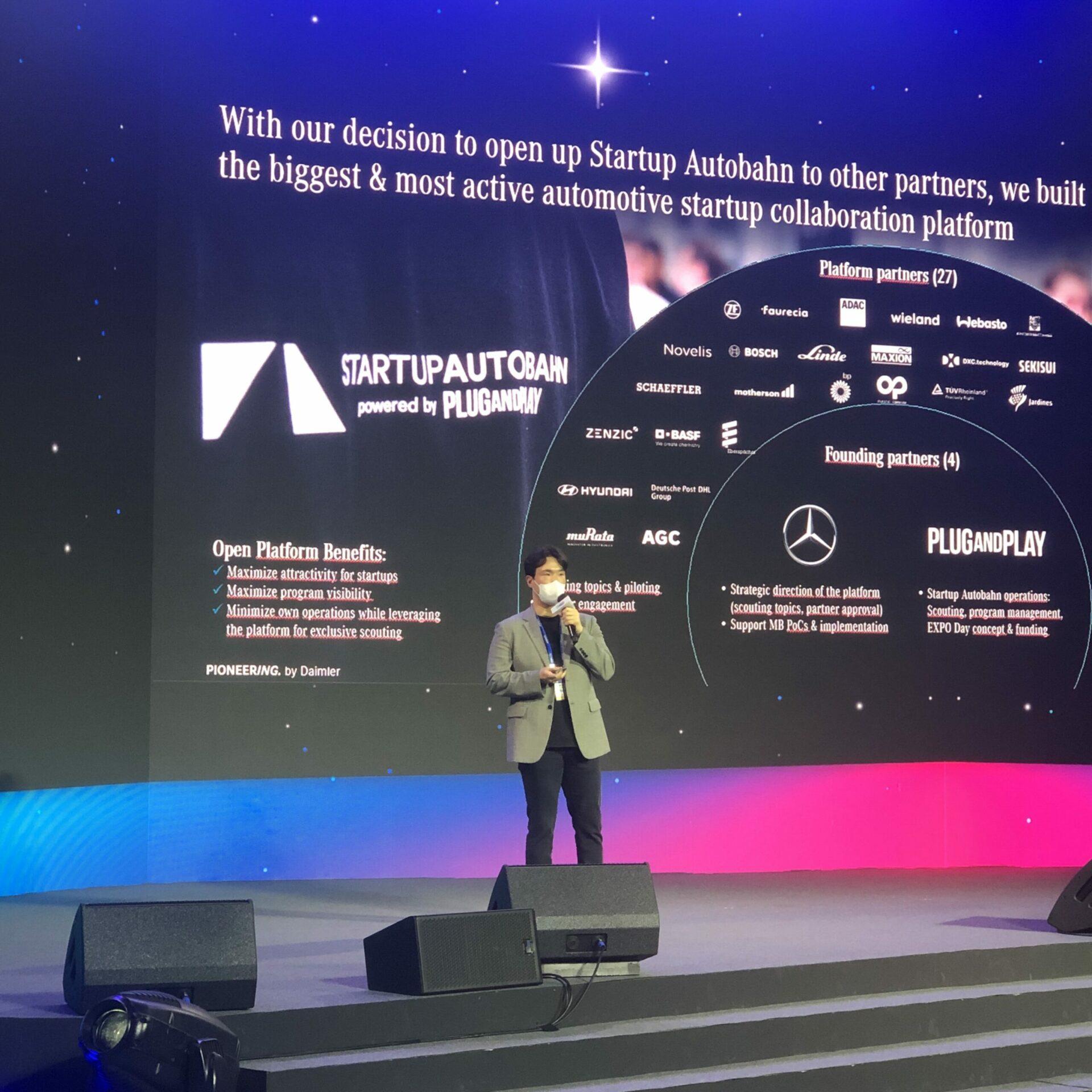
Seungyong Lee, project lead of Daimler’s Autobahn project, talked about what the project was, why they brought it to Korea, and how they would commercialize it to the rest of the world. He stated that worldwide, technology was changing rapidly, and firms couldn’t rely on their in-house work to produce all current technologies. Therefore, they need to partner with startups in creating the new technologies they need while nurturing growth in both companies. “Daimler’s Mercedes-Benz open innovation ecosystem partners with startups offering top-notch technology that can help Mercedes and other large corporations. The project also works with governments, research institutions, and colleges to create new technology that satisfies the current market needs,” said Lee.
Daimler aims to incubate these startups and help them in large-scale production, marketing, and exposure to grow and establish themselves in the market. The Daimler- Mercedes project seeks to commercialize its startup products worldwide using the networks and resources of both companies. He ended his speech by urging large firms to take action and invest in these young companies. “Large corporations are geared towards maintaining top-notch systems and programs for the current market. On the other hand, startups aim at satisfying future needs. Without these two companies partnering and creating synergy amongst each other, neither one can survive the current market,” he added.




